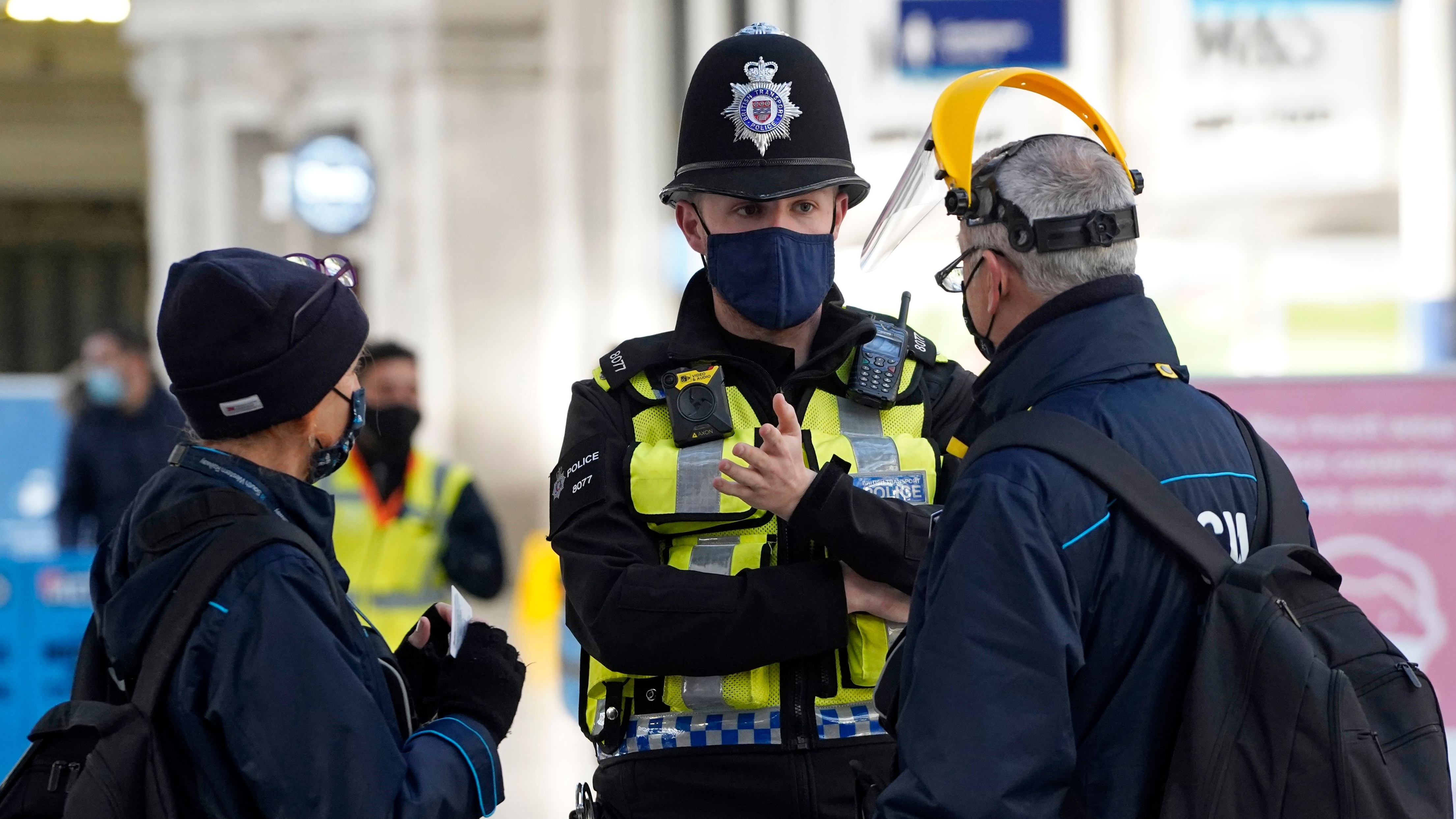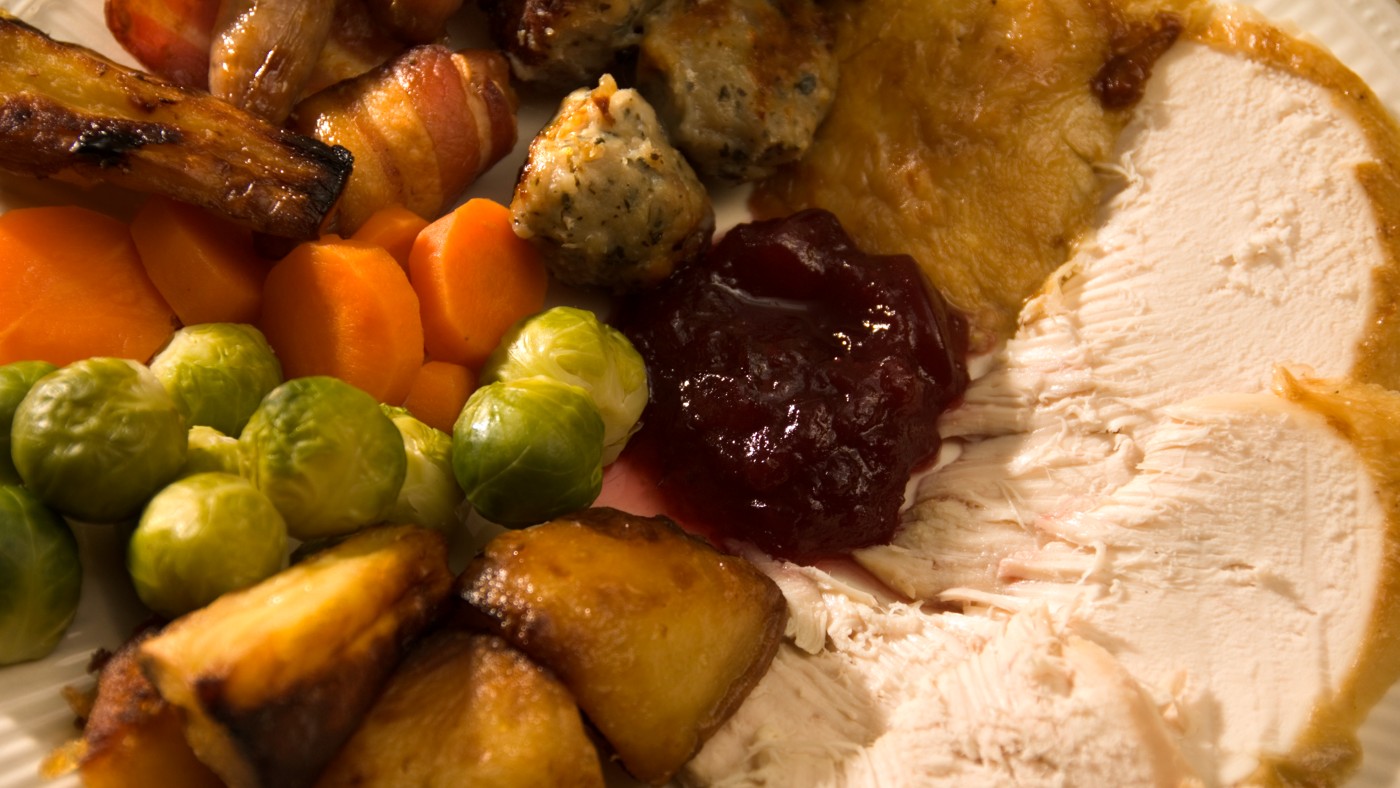‘Time is up for Boris Johnson’s reckless optimism’
Your digest of analysis and commentary from the British and international press

A free daily email with the biggest news stories of the day – and the best features from TheWeek.com
You are now subscribed
Your newsletter sign-up was successful
1. Time is up for Johnson’s reckless optimism
Clare Foges in The Times
on the Christmas U-turn
“The past nine months have seen a tug-of-war in Westminster between sober caution and something-will-turn-up optimism, the scientists and Sir Keir Starmer heaving on one side while our prime minister heaves on the other. Time and again Boris Johnson has pulled government tone and policy on to the side of optimism, before events brutally yank it back again. His fierce desire to cheer people up has led to a series of over-promises; his fierce aversion to bearing bad news has delayed difficult but inevitable decisions... He has repeatedly dismissed Starmer as an unpatriotic Eeyore who lacks the requisite Blitz spirit and belief in Britain to face down the virus, only belatedly to follow the Labour leader’s prescriptions.”
The Week
Escape your echo chamber. Get the facts behind the news, plus analysis from multiple perspectives.

Sign up for The Week's Free Newsletters
From our morning news briefing to a weekly Good News Newsletter, get the best of The Week delivered directly to your inbox.
From our morning news briefing to a weekly Good News Newsletter, get the best of The Week delivered directly to your inbox.
2. How dangerous is the Covid mutation?
Tom Chivers on UnHerd
on a new threat
“Here’s what I’ve learned. In short: it’s real; we need to take it seriously, and watch it closely, and it will likely make life harder; but it’s not panic stations, and there’s no major reason as yet to think it will, for instance, stop vaccines from working. Also, we’ve been oddly lucky with the testing. First: there really is a new, noticeably different strain. Ewan Birney, the deputy director-general of the European Molecular Biology Laboratory, points out that all viruses mutate, all the time. Some, such as HIV and influenza, mutate incredibly rapidly, making it very hard to create vaccines against them. SARS-Cov2 is ‘pedestrian’ by comparison, he says, but still, new mutations arise all the time, and we don’t bother with a press conference for every one. ‘If we did, we wouldn’t be able to move for press conferences,’ he says. The new strain, though, really has mutated significantly more.”
A free daily email with the biggest news stories of the day – and the best features from TheWeek.com
3. Britain is being punished for alerting the world to a new crisis
Tom Harwood in The Daily Telegraph
on spotting the mutation first
“Politics, not science appears to be leading the majority of European countries’ response. How a shutdown in the days before Christmas would prevent a virus strain that the data shows has been merrily replicating since at least September from transmitting is not clear. The French, angry over the United Kingdom’s insistence to control its own waters, have taken an especially draconian approach. While Ireland, Germany, Italy, the Netherlands, and Belgium have impeded the movement of people, not goods, Macron’s administration seems to have taken a particular delight in halting freight as well as travellers. While most countries are making exceptions for cargo, the French – for now – are putting a stop to it. What is clear is that this political disruption comes at the time of crunch talks over issues of borders, movement, and trade. It is disappointing, if not surprising, that obstinate partners in these talks have now found a convenient excuse to pull up the drawbridge.”
4. Europe's UK travel ban is not a punishment for Brexit
Mujtaba Rahman in The Guardian
on the politics of health
“France announced its travel ban after a two-hour meeting of the defence council – chaired remotely by Macron, who is still recovering from the virus himself. The move has sparked allegations by UK Brexiteers, including Nigel Farage, that this was intended to ‘bully’ Britain into an EU trade deal. These claims are unfounded. French officials dismissed them this morning as ‘a lamentable fantasy’... Though we are used to crises over Britain’s trade with the EU, this latest one is simply based on the natural concerns our European neighbours have about the mutant strain of Covid-19 taking root in their own countries. As a senior French source said: ‘We and other EU countries were given little choice by the alarmist tone of the UK government’s own communications on the issue. If London was ordering its own citizens not to leave the south-east, how could we allow travel across the Channel to continue normally?’”
5. Government indecision is the UK’s greatest health threat
Professor Gabriel Scally in The Independent
on leading by example
“It is the most deprived communities in the UK that have most to fear from continued and resurgent spread of Covid-19. Despite this having been clear in England from the early days of the pandemic, local authorities in England have not been given the necessary resources. They are unable to mount an effective outbreak response, nor are they able to ensure that adequate preventive measures are put in place. In particular, the absence of an effective Find, Test, Trace, Isolate and Support system leaves local communities, including their schools and places of work, extraordinarily vulnerable to rapid and lethal spread of Covid-19. Given the enormous death toll in the UK and the lack of an effective government response so far, it will take a major strategic shift for the government to respond effectively to the steadily worsening situation. We absolutely need the Westminster government to make that shift. If it continues to pursue the policies that have failed so far, it is inevitable that they will fail again.”
-
 Health insurance: Premiums soar as ACA subsidies end
Health insurance: Premiums soar as ACA subsidies endFeature 1.4 million people have dropped coverage
-
 Anthropic: AI triggers the ‘SaaSpocalypse’
Anthropic: AI triggers the ‘SaaSpocalypse’Feature A grim reaper for software services?
-
 NIH director Bhattacharya tapped as acting CDC head
NIH director Bhattacharya tapped as acting CDC headSpeed Read Jay Bhattacharya, a critic of the CDC’s Covid-19 response, will now lead the Centers for Disease Control and Prevention
-
 Nan who charges family for Christmas dinner puts up price
Nan who charges family for Christmas dinner puts up priceTall Tales And other stories from the stranger side of life
-
 Woman solves 'rude neighbour' mystery
Woman solves 'rude neighbour' mysteryTall Tales And other stories from the stranger side of life
-
 Office Christmas parties give us sleepless nights
Office Christmas parties give us sleepless nightsTall Tales And other stories from the stranger side of life
-
 'Dead' woman nearly suffocated in morgue bag
'Dead' woman nearly suffocated in morgue bagTall Tales And other stories from the stranger side of life
-
 World's 'smelliest cheese' hits shelves
World's 'smelliest cheese' hits shelvesTall Tales And other stories from the stranger side of life
-
 White Easter more likely than a white Christmas
White Easter more likely than a white ChristmasTall Tales And other stories from the stranger side of life
-
 ‘Irony’ as Zoom calls staff back to office
‘Irony’ as Zoom calls staff back to officefeature And other stories from the stranger side of life
-
 The U.S. veterinarian shortage crisis
The U.S. veterinarian shortage crisisSpeed Read With an anticipated shortage of 15,000 vets by 2030, it will be harder to get care for pets